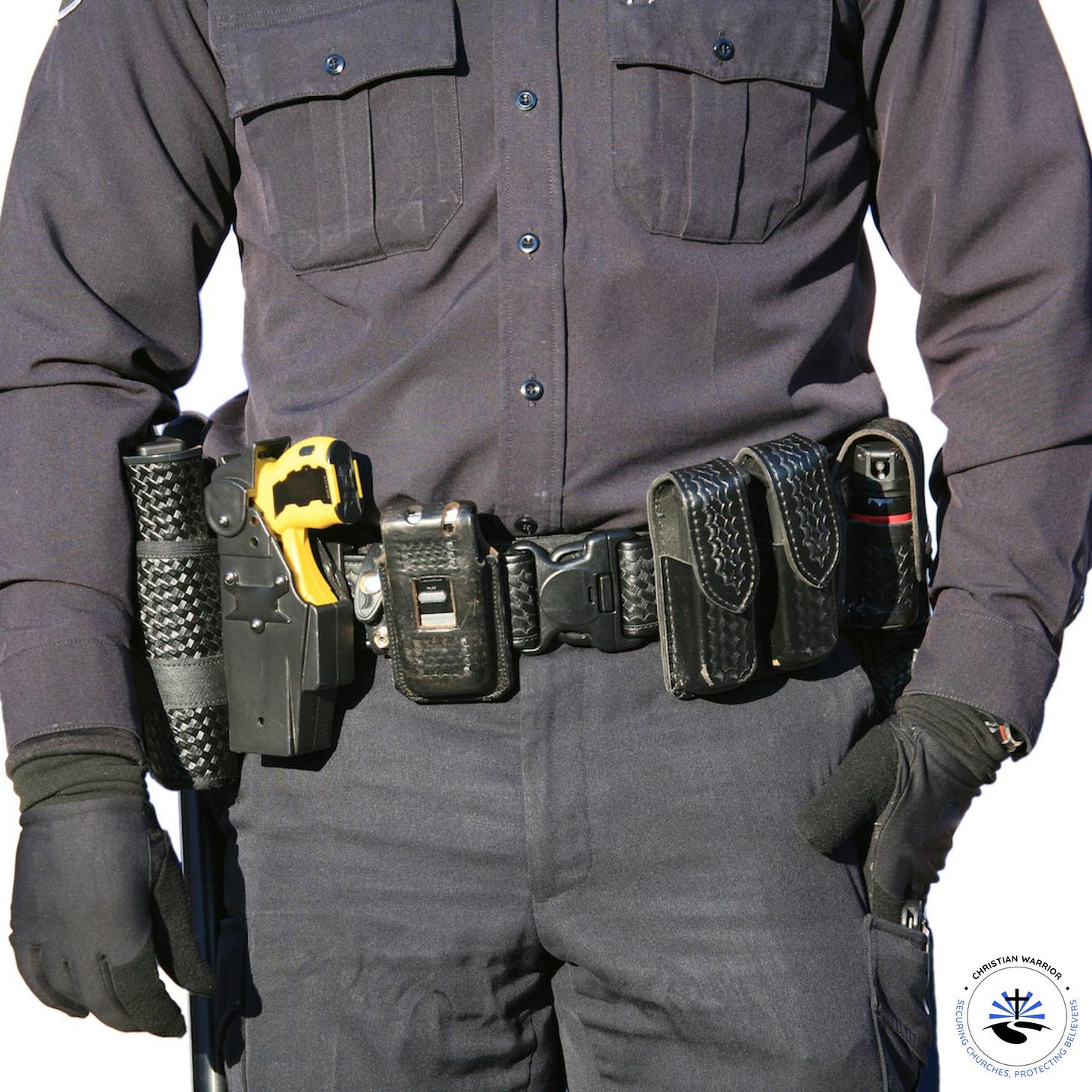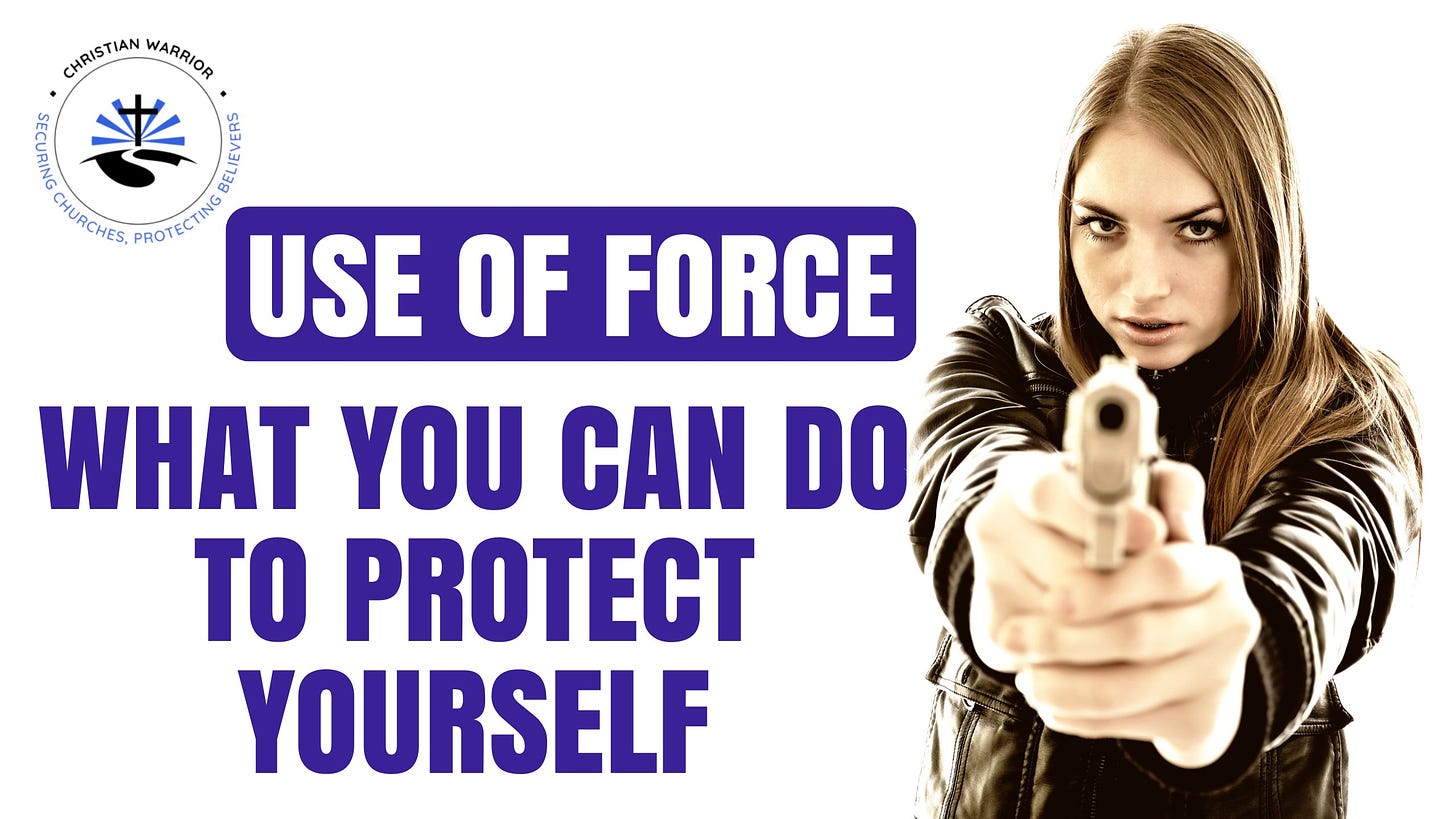A Comprehensive Guide to Church Security Concealed Carry
Policies, Training, and Qualification
Luke 22:36 - "He said to them, 'But now let the one who has a moneybag take it, and likewise a knapsack. And let the one who has no sword sell his cloak and buy one.'"
The topic of security within places of worship has gained significant attention in recent years. While churches are meant to be sanctuaries of peace and community, the unfortunate reality is that they are not immune to risks. This brings us to the importance of Church Security Concealed Carry—a specialized approach to ensuring the safety of your congregation. This comprehensive guide aims to cover all the essential aspects, from legal considerations and policies to specialized training and qualification courses.
Legal Considerations
Navigating the legal landscape is the first crucial step in setting up a Church Security Concealed Carry program. Laws governing concealed carry in places of worship vary significantly from state to state, and it's essential to be well-informed to avoid any legal repercussions.
Federal Laws
At the federal level, the Gun-Free School Zones Act of 1990, amended in 1996, makes it illegal to knowingly possess a firearm in a school zone. This zone is defined as in, or on the grounds of, a public, parochial, or private school, or within 1,000 feet from the grounds of such a school. Given that many churches have schools or childcare facilities on their premises, compliance with this federal law is crucial when considering a Church Security Concealed Carry program. Violations can result in criminal charges, including imprisonment for up to 5 years.
Key Points of the Law
The law applies to all states but allows for certain exceptions, such as if the individual possessing the firearm is licensed to do so by the state in which the school zone is located.
The law does not apply to private property that is not part of school grounds.
State Laws
Obviously, laws about carrying concealed in a church vary from state to state. To illustrate the diversity in state laws, let's consider two contrasting examples: California and Idaho.
California
In California, concealed carry in a church is generally not permitted unless you have a Concealed Carry Weapon (CCW) license issued by local law enforcement. The state of California may also require security officers to be licensed by the state. If that is the case in your church, security guards may not carry concealed and can only open carry and will need an armed guard card.
Idaho
Conversely, Idaho practices constitutional carry, allowing any U.S. citizen to carry a gun without the need for a special permit. However, individual churches in Idaho can still opt to restrict or prohibit firearms on their premises.
Licensure Requirements
When it comes to Church Security Concealed Carry, obtaining the proper licenses is not just a legal obligation but also a testament to the commitment and professionalism of your security team. Here are the key licensure aspects you should consider:
CCW License
Even in states that practice constitutional carry, obtaining a Concealed Carry Weapon (CCW) license adds an extra layer of legitimacy. The process usually involves background checks, fingerprinting, and often a mandatory training course. Holding a CCW license ensures that the individual has met certain criteria and is knowledgeable about firearm safety and laws.
Armed Guard Card (If Applicable)
In some states, like California, an armed guard card may be required in addition to or instead of a CCW license. This card often comes with its own set of training requirements and restrictions, such as limiting the individual to open carry. Failure to obtain this card where required can result in legal consequences, including fines and imprisonment.
Assessing the Need
Before diving into the specifics of setting up a Church Security Concealed Carry program, it's crucial to assess the actual need for such a program within your church community. Here are some steps to guide you:
Conducting a Risk Assessment
A thorough risk assessment involves evaluating the potential threats and vulnerabilities that your church may face. This could range from petty theft to more severe incidents like armed intrusion. The assessment will help you determine the level of security needed and whether a concealed carry program is the most effective solution.
Consulting with Church Leadership
The decision to implement a Church Security Concealed Carry program should be a collective one, involving key stakeholders like pastors, elders, and administrative staff. Their input is invaluable in gauging the community's comfort level with such a program and in making informed decisions.
Community Input
While the leadership's approval is crucial, it's also important to consider the views of the broader church community. Conducting surveys or community meetings can provide insights into the congregation's feelings towards a concealed carry program and can help in making a more informed decision.
Formulating Policies
Setting up a Church Security Concealed Carry program requires a well-defined set of policies. These policies serve as the backbone of the program, ensuring that all team members are on the same page and that legal requirements are met.
Eligibility Criteria
Determining who can be part of the security team is a critical first step. Background checks should be mandatory, along with other qualifications such as prior security or law enforcement experience. The criteria should be stringent to ensure that only responsible and qualified individuals are armed within the church premises.
Deadly Force Policy
A deadly force policy is essential for any Church Security Concealed Carry program. These rules should outline when it is appropriate to draw a weapon, the use-of-force continuum, and the steps to be taken post-engagement. A well-articulated set of rules helps prevent misuse of firearms and ensures that team members act responsibly.
Procedures
Once the policies are in place, the next step is to establish procedures that guide the security team's actions during various scenarios.
Emergency Response Plan
An effective emergency response plan should include communication protocols, roles and responsibilities, and evacuation plans. The plan should be rehearsed regularly to ensure that all team members are familiar with their duties and can act swiftly in case of an emergency.
Reporting Incidents
A standardized procedure for reporting incidents is crucial for accountability and legal protection. This should include both internal reporting mechanisms within the church and guidelines for reporting to local law enforcement. Proper documentation is key and can serve as valuable evidence if legal issues arise.
Training Requirements
Training is the cornerstone of any effective Church Security Concealed Carry program. It ensures that team members are not only legally compliant but also competent and confident in their roles.
Basic Training
Firearm Safety
Every team member must undergo basic firearm safety training, which includes the fundamentals of handling, storing, and maintaining firearms. This training should also cover the legal aspects of firearm use, particularly in a church setting. This training should be conducted by a certified instructor, either through the NRA or through a state Police Officer Standards and Training firearms instructor course.
Legal Aspects
Understanding the legal implications of using a firearm in a church is crucial. This should include federal laws, state-specific laws, and any local ordinances that may apply. Regular updates should be provided to keep team members abreast of any legal changes.
Advanced Training
Scenario-Based Drills
Advanced training should involve scenario-based drills that mimic potential real-life situations. This could include active shooter scenarios, hostage situations, and other emergency events specific to a church environment.
First Aid and CPR
Given that any use of a firearm could result in injuries, basic first aid and CPR training are essential for all team members. This ensures that immediate medical assistance can be provided until professional help arrives.
Church-Specific Qualification Course
A specialized qualification course tailored for church settings can set your security team apart. This course should be designed to address the unique challenges and constraints of a church environment.
Many churches use their local, law-enforcement qualification course. This is a mistake. The qualification course for a police officer, or a patrol deputy, is based off of that law enforcement officers daily duties. Their duties are different than your duties.
Your duties don't include making traffic stops, going to alarm calls, or conducting hostage rescues. Your duties are solely at the church. This means you will be shooting in a crowded environment where you cannot miss a shot. Missing a shot means that the round that missed went through a wall and into the Sunday school classroom. Each shot is a $1,000,000 shot (meaning, each missed shot can cost you millions in a lawsuit).
Here is the qualification course I designed for my church security team. I designed it with my church in mind and my team’s duties in mind.
Below is a video of how to run the course of fire.
Equipment
The right equipment is crucial for the effective functioning of a Church Security Concealed Carry program. While the firearm is the most obvious piece of equipment, other gear is equally important for ensuring safety and effective communication.
Recommended Firearms
Selecting an appropriate firearm is a critical decision. The choice should be based on various factors such as ease of use, reliability, and concealability. I’ve seen some crazy pistols show up at qualifications. From Desert Eagles to budget firearms that are not reliable (like Kel Tek).
I’m going to hurt some feelings here. This list of pistols made for use in church security environments is based off of testing done by police agencies across the country. I’ve done a video on weapons selection that you can view here.
It’s also important that a designated range master be selected for your team. This range master should have either NRA or POST certification. Military certification is not applicable here since their firearms training is geared towards destroying our countries enemies, not securing the homeland.
Pistols should be approved by the rangemaster as well as ammunition. I’ve seen some crazy ammunition in people’s pistols at church. As an example, I’ve seen ball ammunition, which would be a catastrophe in a crowded church environment.
Additional Gear
Radios
Effective communication is key in any emergency situation. High-quality radios that allow for clear and quick communication among team members are essential. Our church recently got an FCC license so we can have our own frequency. We did this so we don’t use FRS or GRMS anymore and have radios that are more reliable, professional and secure.
First Aid Kits
Given the potential for injuries, having well-stocked first aid kits readily available is crucial. These kits should include basic medical supplies and be easily accessible.
Implementation
Implementing a Church Security Concealed Carry program is a multi-step process that requires careful planning and execution.
Gaining Approval
Before rolling out the program, it's essential to gain approval from church leadership and the congregation. This may involve presentations, discussions, and possibly a voting process to ensure that the community is on board.
Rollout Plan
Phases of Implementation
A phased approach is often the most effective way to implement a new security program. Start with a pilot phase involving a small team, gather feedback, and make necessary adjustments before a full-scale rollout.
Monitoring and Feedback
Once the program is in place, ongoing monitoring is essential. Regular meetings should be held to discuss any issues, and feedback should be actively sought from both the security team and the congregation.
Documentation
Maintaining accurate and detailed documentation is a critical aspect of a Church Security Concealed Carry program, both for accountability and legal protection.
Training Records
Qualification Records
Every security team member who completes the qualification course should have a record on file. This record should document:
The specific course of fire completed
A statement indicating that the individual passed. Some teams like documenting the score. This is not necessary. Just document whether they passed or failed.
The brand, model, caliber, and serial number of the pistol used for qualification.
Do not video or photograph the participant and their target. This is all discoverable and will become fodder for the defense attorney during a trial.
Additional Training Records
Any extra training sessions attended by security team members should also be meticulously documented. This could include:
Scenario-based drills
Legal updates
First aid and CPR training
Any other specialized training relevant to the Church Security Concealed Carry program
Licenses and Permits
Keep copies of all relevant licenses and permits on file, such as:
Concealed Carry Weapon (CCW) licenses
Armed guard cards (if applicable)
These documents should be kept up-to-date and stored in a secure location, accessible only to authorized personnel.
Setting up a Church Security Concealed Carry program is a multifaceted and demanding task that requires careful planning, comprehensive training, and stringent documentation. This guide has aimed to provide a detailed roadmap for churches considering such a program, covering everything from legal considerations to equipment selection and record-keeping.
By adhering to federal and state laws, obtaining the necessary licenses and permits, and maintaining meticulous training records, churches can establish a Church Security Concealed Carry program that not only enhances the safety of their congregation but also stands up to legal scrutiny.
The importance of this endeavor cannot be overstated. In a world where places of worship are not immune to risks, taking proactive steps to ensure the safety of your congregation is not just a responsibility—it's a moral imperative. With the right approach, commitment, and attention to detail, you can create a secure environment that allows your congregation to focus on what matters most: worshiping in peace.








Question: I have my CA Armed Guard Card , can I perform Armed Security at my church or do I have to be associated with a PPO first?